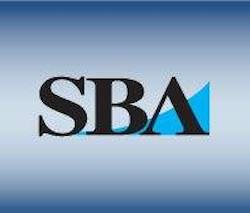 Representative Sam Graves (R-Mo.) has submitted a comment letter on proposed rules for Title III crowdfunding. He is the Chairman of the House Committee on Small Business, the same committee that has seen various testimonies on the subject of crowdfunding and the alternative finance industry more broadly since the passage of the JOBS Act. (See exhibit A, B and C)
Representative Sam Graves (R-Mo.) has submitted a comment letter on proposed rules for Title III crowdfunding. He is the Chairman of the House Committee on Small Business, the same committee that has seen various testimonies on the subject of crowdfunding and the alternative finance industry more broadly since the passage of the JOBS Act. (See exhibit A, B and C)
The letter is interesting in that it makes official some of the criticisms that were clearly being ruminated upon by members of the House Committee on Small Business since April of 2012.
The full letter is available here. What follows is a breakdown of the letter and my thoughts on the matter from the perspective of an entrepreneur and observer…
At a time when small businesses are counted on to provide economic growth yet struggle to find early-stage capital, the JOBS Act was crafted in an effort to lower regulatory barriers and increase the availability of capital to small businesses.
This we know, but notice the reiteration of “lower regulatory barriers.” Yes, any exemption has this goal by definition, which is why it is all the more interesting it’s restated here. The implication: the barriers are too high.
The SEC should be commended for recognizing that the proposed rules will have a significant economic impact on a substantial number of small businesses. However, the SEC’s IRFA is inadequate because the Commission failed to comply with the critical requirement of the RFA which is to examine alternatives to the proposed rule that could accomplish the objectives of the rulemaking. As these comments will show, there are a number of alternatives that the SEC could have considered which would maximize the benefits of crowdfunding to small businesses without undermining protections to the investing public. Therefore, in its preparation of the final rule and FRFA, the Commission should take its responsibilities under the RFA seriously by examining viable alternatives rather than claiming alternatives it has considered could undermine the objectives of its regulatory goals.
And now we get to the meat. Before I break this down, let me preface this by saying I am not a lawyer. I’m an entrepreneur. I encourage you to do your own due diligence.
 On the subject of the Regulatory Flexibility Act (RFA), The SBA has an excellent shortened breakdown of the Act. According to that breakdown, “The [RFA], enacted in September 1980, requires agencies to consider the impact of their regulatory proposals on small entities, to analyze effective alternatives that minimize small entity impacts, and to make their analyses available for public comment.” In short, it forces regulatory agencies to consider the economic impact of regulation on small businesses.
On the subject of the Regulatory Flexibility Act (RFA), The SBA has an excellent shortened breakdown of the Act. According to that breakdown, “The [RFA], enacted in September 1980, requires agencies to consider the impact of their regulatory proposals on small entities, to analyze effective alternatives that minimize small entity impacts, and to make their analyses available for public comment.” In short, it forces regulatory agencies to consider the economic impact of regulation on small businesses.
Now, consider that the entire letter is very much framed in the context of a January hearing on crowdfunding in front of this Committee. At that hearing, the requirement for audited financials for issuers raising over $500,000 was particularly lambasted. Here, Graves calls for an examination of alternatives to that rule with consideration to the economic impact of all considered implementations.
Related – See The SBA’s Knockout Punch via Sam Guzik
The statute prescribes specific amounts defining the first and second tiers, but for the third tier, the statute gave the Commission the discretion to establish the threshold at any amount more than $500,000. The Proposed Rules include a requirement that all issuers seeking over $500,000 must submit audited financial statements to the SEC, i.e. , the Commission did not exercise its discretion to raise the limit for the Third Tier. 18 In explaining its decision not to utilize the discretion given to it by statute and establish a higher threshold, the Commission notes “Congress specifically selected $500,000 as the threshold at which to require audited financial statements. If we were to raise the threshold to $1 million, as suggested by some commenters, it would eliminate the requirement for issuers ever to provide audited financial statements because the maximum offering amount under Section 4(a)(6) is $1 million.”
A close examination of the Commission’s rationale for failing to exercise its statutory discretion with respect to the Third Tier reveals numerous flaws. First, the SEC misreads the statute since the $500,000 is not a threshold but rather a floor that the Commission may modify. From this floor, the SEC then reasons that it would be inappropriate to exercise its discretion to raise the Third Tier to $1 million as commenters requested. What the Commission did not analyze is whether the statutory objective of creating a useful crowdfunding mechanism for small businesses would be met by raising the level triggering the submission of audited financial statements above $500,000 but less than $1 million
Now, let me put my young, increasingly-jaded entrepreneur hat on. This seems like a punt.
 The SEC is making the point that the third tier is in the statute. Check. Sure, the SEC has discretion to change that threshold, but I’m left with one question: If the point was to create a low-friction, inexpensive way to raise capital for startups (Jumpstart Our Business Startups Act), why were audited financials ever a part of the statute in the first place? It seems Congress should take some responsibility here. (Could this be at the root of some of the JOBS Act 2.0 talk?)
The SEC is making the point that the third tier is in the statute. Check. Sure, the SEC has discretion to change that threshold, but I’m left with one question: If the point was to create a low-friction, inexpensive way to raise capital for startups (Jumpstart Our Business Startups Act), why were audited financials ever a part of the statute in the first place? It seems Congress should take some responsibility here. (Could this be at the root of some of the JOBS Act 2.0 talk?)
Startup companies have very little (read: nothing) to audit. Congress may have miscalculated by including any mention of audited financials in the JOBS Act. Now that the requirement is in the statute via an act of Congress, I’m gathering it’ll take an act of Congress to remove it.
Anecdotally, I don’t get the sense that many in this industry think raising the threshold to, say, somewhere between $750,000 and $1 million will fix anything. In his testimony at that hearing, DJ Paul called the space between $500,000 and $1 million a “donut hole” for a reason. If Paul is right, I wonder if making the hole smaller should be the goal.
The audit requirement could be functionally removed from the final rules if the SEC sets the third tier threshold to, say, $1 million. That would also further prove the point that the third tier should have never been part of the bill. Its inclusion clouds the intent.
For crowdfunding’s proposed rules, much of the criticism thus far has been aimed at the SEC for their interpretation of the JOBS Act. I think it is clear that some of the problem is baked into the Act itself.

